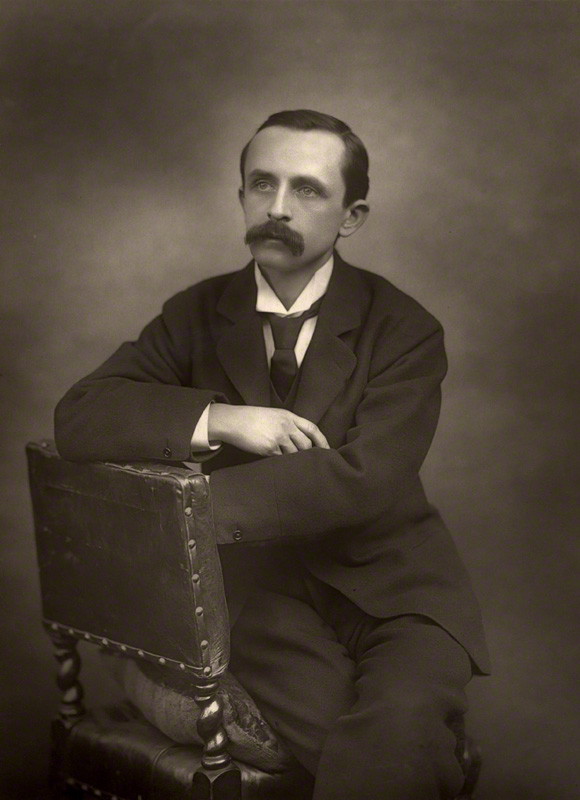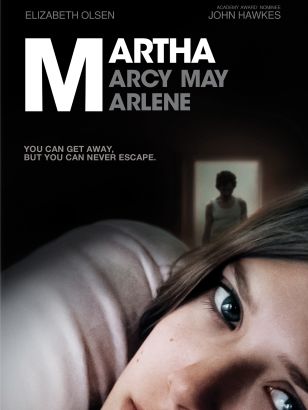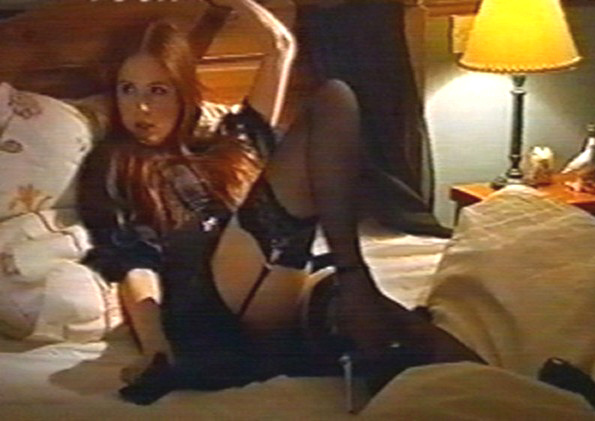After all the joy that the Peter Pan story has brought to the world, it seemed appropriate to bring the life story of his creator, Sir James M. Barrie, to life. Finding Neverland is not strictly speaking either a biopic on the life of the author nor about the creation of his most famous character. Instead, it is a mixture, well-done, well-acted, but highly fanciful in more ways than one.
James Barrie (Johnny Depp) is a playwright whose latest work has flopped. His wife, Mary (Radha Mitchell) doesn't understand him. She would rather try to climb society than deal with his artistic frustrations. One day whilst walking and writing in the park, he comes upon a group of boys. It is the Llewelyn Davies children, who are in the park with their widowed mother, Sylvia (Kate Winslet). James soon enchants them: George (Nick Raud), Michael (Luke Spill), and Jack (George Prospero). However, one of them he cannot win over: young Peter Llewelyn Davies (Freddie Highmore), who sees things as they are, not as he would like them to be. In short, he has no imagination, much to Barrie's sadness.
In any case, there are many who disapprove of Barrie lavishing so much attention on the Widow Davies. There's Mrs. Barrie (who due to a mixture of this and her own evil starts an affair). There's the Widow Davies' mother, Madame DuMarier (Julie Christie), who thinks it's idiotic that a grown man should be at play. However, Barrie appears more interested in the Davies boys than in anything close to romance with the Widow Davies. The boys, having endured the trauma of having lost their father, become worried when their mother begins coughing incessantly.
However, thanks to the Davies boys, Barrie is now inspired to write the story of a boy who wouldn't grow up, much to the puzzlement of his producer Charles Frohman (Dustin Hoffman) and the cast of his new play (who don't understand the idea of dogs as nannies and being who can fly and all this about Indians and pirates). Despite his misgivings, Frohman produces this Peter Pan, and with a little help from children in an orphanage whom Barrie has brought in, the play is a hit.
Unfortunately, the Widow Davies could not attend. She is deathly ill and on the night of the premiere has to be confined to bed (although she insists the boys go). Madame DuMarier, having been put in her place by George (who insists "Uncle Jim" be allowed to visit), is not moved, but when Barrie brings Peter Pan to her, she does appear to melt...ever so slightly. That is, until her daughter finally dies. In her will, Sylvia has made James co-guardian of her boys, and while Madame DuMarier isn't happy about it, she decides to respect her daughter's wish. Finding Neverland ends with James comforting Peter, who now knows he can believe...
Finding Neverland as I've stated, is not about J.M. Barrie. It also isn't about the creation of Peter Pan per se. Rather, Finding Neverland tells both stories, a mixture of both a point in Sir James' life and how his most famous work came to be--two stories running parallel but rarely if ever intersecting. Director Marc Foster has moments where the rehearsing for Peter Pan is connected to what's going on the Davies boys' lives, and gives hints about the confusion the actors have over the material. He also has bits of when his involvement with the Davies family is far more important than his career. However, I never got the sense that both stories connected.
We get little hints of how his interactions would bear fruit. A little light glowing at the tail end of a kite looked awfully like a fairy, and how Grandmama DuMarier menaces the children with a coat hanger (which looked suspiciously like a hook) would signal where Barrie's imagination was spinning. This wasn't a bad idea, but it didn't make one think, "Oh, so THAT'S where Tinker Bell came from", more like, "Oh, we're getting hints about Peter Pan". For a film about the magic of imagination, these little bits were a little too forced.
I also had issues with the deliberate whimsy in Finding Neverland. In one scene, as Barrie entertains the children by dancing with his dog while pretending it is a bear, we see the world transformed into a circus where he is, indeed, dancing with a bear (or rather an obvious man in bear costume). Near the end, when Sylvia is introduced to Neverland, we do literally walk into that fantasy world.
I don't object to this (after all, film is allowed some creative licence), but somehow these flights of fancy do take away from the serious issues the Davies family is facing. The fact that we don't really know what is killing Sylvia almost makes the thing come close to melodrama (I thought she had good old consumption, but since I saw she coughed no blood it might not have been).
I finally question the intelligence of Barrie and Sylvia. How in Edwardian times both Barrie and Sylvia wouldn't think the idea that a widow going around with a married man might raise eyebrows makes them either totally innocent or totally dim. I vote for innocent. As portrayed by Depp and Winslet, they did not have a passionate yearning for each other. In fact, it appeared that the Widow Davies was more a chum to Barrie than a potential lover. He appeared to appreciate that he had new playmates more than anything else.
This isn't to say that David Magee's adaptation of Allan Knee's The Man Who Was Peter Pan didn't have some good things going for it. Chief were the performances. I am not a fan of accents on film, but Depp made his Scottish brogue into something so natural one would almost think Ewan McGregor had done dubbing work. His accent was flawless, never intrusive or exaggerated, but one that sounded authentic. He also made Barrie into a gentle soul, and it is nice to see a writer who doesn't appear to be insane.
Winslet is someone whom at times I am not fond of as an actress. I think she is a better actress whenever she is asked to keep her clothes on, and here she doesn't make her dying heroine into a figure of pathos and grand drama, but simply a mother who misguidedly thinks she is protecting her sons. It's unfortunate that Christie is reduced to the role of the heavy, and this is a flaw in the script: it never makes the case as to how SHE was the one leading the applause to save Tinker Bell.
One also congratulates the young cast for making the Davies boys come alive. Freddie Highmore, with the plum role of Peter, conveys excessive maturity with vulnerability as the boy who grew up too fast. He holds an audiences' attention in his stubborn refusal to be a child until he finds that despite his best efforts, he still feels pain.
A side issue: somehow, I didn't fully take the idea that Mrs. Barrie had to be such a cold, unfeeling bitch. I find that this convention of film usually happens to justify a spouse leaving someone for someone else (someone better, nicer, kinder). The real Mary Barrie may have been a terrible person, but somehow Mitchell's one-note performance makes her a caricature and less a person.
On the technical matters, Finding Neverland does a fine job recreating the Edwardian theater world in the costumes and sets (all which appear real and authentic rather than excessive). Jan A.P. Kaczmarek's score is gentle and magical, a credit to the film.
Finding Neverland is a good film, with good performances, especially from Depp and Highmore. However, it is fantasy in so many ways. We can leave aside certain liberties the film takes with historical accuracy (such as the fact that Mr. Llewelyn Davies was still alive in 1903 when the film begins). The real story of the Davies boys post-Peter Pan is far darker and depressing.
George was killed in World War I, Michael drowned at age 20 with his best friend (and possible lover), and Peter committed suicide at age 63 in 1960, plagued by alcoholism and the notoriety/burden of being the inspiration for Peter Pan.
Perhaps, given the sorry situation the boys had afterwards, the fantasy/fiction of Finding Neverland might be better. It is better to see the boys sad but comforted rather than truly lost...
 |
| 1860-1937 |
DECISION: B-



-picture-MOV_0fb8175a_b.jpg)
+movie+Poster.jpg)







